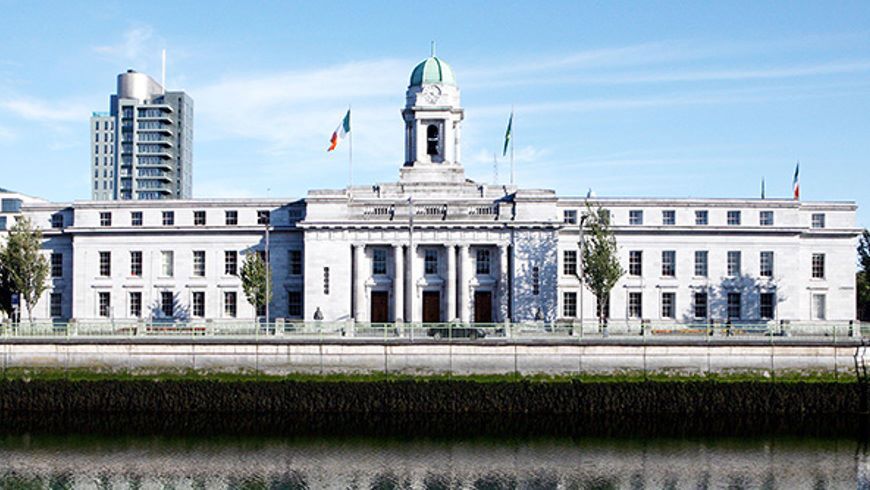Energy Initiatives
Cork City Energy Agency aims to develop, ratify and implement coherent energy policy for Cork City Council.
Cork City Council Energy Policy
The City Council has spearheaded many energy initiatives and through these actions has contributed in the promotion of renewable energy and sustainable initiatives.
Cork City Council has achieved international certification for its commitment to energy efficiency within the organisation and therefore to reducing its carbon footprint.
The international ISO 50001 standard outlines international best practice in energy management within an organisation.
Cork-City-Council-ISO-50001-Certificate (size 104.5 KB)
Cork City Council’s certification was achieved after an extensive audit of the organisation’s energy management system. The achievement assists Cork City Council in meeting national energy efficiency targets of a 33% improvement in energy efficiency by the end of this year and a 50% efficiency improvement by 2030.
Cork City Council achieved a 44.9% improvement in energy efficiency up to the end of 2019 compared to the baseline year of 2009. This puts Cork City Council ahead of its energy efficiency targets.
It will also contribute to the implementation of the Cork City Council’s Climate Change Adaptation Strategy and the Sustainable Energy Climate Action Plan (SECAP).
Lord Mayor of Cork, Cllr John Sheehan said: " Cork City Council has continually invested in energy efficiency projects over the years to help meet our national targets and reduce carbon emissions. One of the standout projects to date is the generation of electricity from landfill gas at the now closed Kinsale Road landfill site. This project commenced the production of green electricity in November 2015 and is expected to continue until 2022".
In November 2018, Cork City Council Chief Executive Ann Doherty approved the establishment of a cross-departmental Energy Team which played a central role in the effective implementation of the energy management system and paved the way to the certification.
Cork City Council’s Energy Performance Officer and Senior Engineer, Noel Murtagh said: ”The Energy Section of Cork City Council were very happy to work with SEAI and receive this accreditation which will help in the organisation achieving ambitious energy saving targets and assist in the implementation of the climate change adaptation strategy”.
Each year, Cork City Energy Agency carries out a number of energy initiatives to help meet the 2020 target. Recent initiatives carried out are as follows:
In August 2016, Cork City Council installed 42 solar PV panels on the roof of Ballyvolane Fire Station.
The solar PV panels currently offset approximately 17% (€1,500) of the buildings electricity and eliminated 4,500kg of CO2 from the atmosphere each year.
In 2017, Cork City Council teamed up with Solo Energy to install a “state of the art” battery storage system at Ballyvolane Fire Station.
The aim of the project is to improve the above figures through increasing solar PV and thus self-consumption within the building, whilst also testing provisions of grid services to ESB Networks.
In the second half of 2017, Cork City Council carried out a deep energy retrofit of the Main City Library under the SEAI Better Energy Community (BEC) scheme.
The retrofit consisted of replacing the old heating system with an air-to-air heat pump, and the installation of roof-mounted Solar PV.
LED Lights were installed internally.
This air-to-air heat pump is a system which transfers heat contained in the outside air to inside the building, giving energy cost savings as well as reducing CO2 emissions.
- Street Performer's Permit
- Climate Action
- Air Quality
- Energy Initiatives
- Environmental Awareness
- Litter & Street Cleaning
- River Basin Management
- Waste Enforcement
- Civic Amenity Site & Recycling
- Old Cork Waterworks Experience
- Environment Boundary FAQs
- Noise
- Solvent and Paint Regulations
- Dangerous Substances Licence
- End-of-Life Vehicle (ELV)
- Radon Advice



